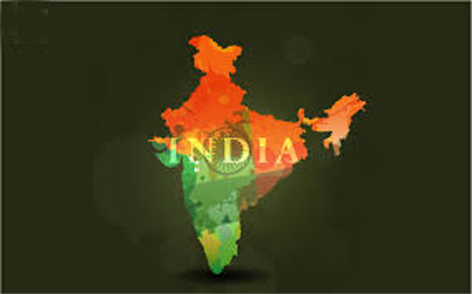NEW DELHI, May 26: A well-oiled network of pharmaceutical companies, agents and influential people is behind the smuggling of Phensedyl cough syrup from India to Bangladesh whose seizure has shot to an all-time high during the nationwide lockdown imposed to prevent COVID-19 spread, excerpts from a BSF report and officials said.
A senior home ministry official told PTI that Phensedyl smuggling is a “major irritant” in the India-Bangladesh ties and a “collaborative approach” involving the Centre, state governments and law enforcement agencies is required to end this menace.
The anti-narcotics department said the difficult and unique terrain and living conditions along the 4,096-kms long India-Bangladesh border is aiding this drug crime coupled with the fact that as cattle smuggling has gone down to its least over the last decade at this front, poor locals are being increasingly lured into Phensedyl smuggling.
The Border Security Force (BSF) has done well and come down heavily on cattle smuggling at this border, but that loss is now being used by smugglers to pump more resources and manpower into Phensedyl smuggling, the home ministry official said.
Phensedyl is a codeine-based cough syrup and abused as an intoxicant in the neighbouring country that follows liquor prohibition. It is abused by youngsters and is “consumed in large quantity against the recommended small dose to get a kick”.
Bangladesh has banned the syrup long ago and has accused the BSF and other Indian agencies of not doing enough to completely stop its smuggling which was spoiling its young generation.
A recent report prepared by BSF’s south Bengal frontier, from where maximum Phensedyl is smuggled cross-border to Bangladesh, states that “a well-oiled network of people, top officials from pharma companies, clearing and forwarding agents in states, drug stockists and influential people are engaged in this illegal trade where demand for production of medicines is kept high in contrast to actual consumption”.
The report authored by BSF Deputy Inspector General (Intelligence) Surjeet Singh Guleria adds that the smuggling ring interestingly operates with “proper paper formalities and excess medicines are manufactured (in India) and smuggled to Bangladesh”.
The extent of the menace can be gauged from the fact that the BSF has seized over 33,536 bottles of Phensedyl from smugglers along the over 900-km south Bengal front during the lockdown period (of March 25-May 24), while the comparative figures for the same period last year was 30,204 bottles.
Over 1.98 lakh Phensedyl bottles were seized last year by the BSF from this front alone, with some more seizures undertaken by other narcotics control agencies.
“We keep intercepting Phensedyl consignments in various states along the Bangladesh border in coordination with the BSF and other agencies. No doubt, this menace is reported maximum in West Bengal and the agencies are geared up to meet the challenge of an increased volume of this illegal activity,” a Narcotics Control Bureau officer said.
He said the central agency has held various syndicates that run this crime and has unearthed many such networks, but “a renewed vigour” is being seen off late to smuggle these bottles to Bangladesh and this can be linked to the ongoing coronavirus restrictions in both the countries.
Phensedyl, solely manufactured by Abbott Healthcare in India, is a schedule H drug and can only be sold on a doctor’s prescription.
When sought for a comment on measures taken against pilferage of the syrup, the company told PTI they have strict measures in place.
“Abbott has stringent and comprehensive initiatives in place to address the misuse and diversion of our codeine-based formulations. We ensure that the product is only sold to licensed distributors with a cap on the batch sizes and on the quantity invoiced to each distributor. This facilitates easier tracking of the products by the regulatory authorities,” an Abbott spokesperson said in a statement.
He said Abbott’s Global Product Protection organisation conducts frequent audits and alerts authorities on any suspected counterfeit products.
The BSF report states that India “just has 1,500 drug inspectors responsible for more than 10,000 factories supplying medicines for a population of more than 1.2 billion and exporting to nearly 200 countries”.
West Bengal, it says, only has 140 drug inspectors to monitor more than 50,000 pharmacies.
The BSF report explains the modus operandi of smuggling, “Excess Phensedyl is diverted through trucks to the bordering cities from where it is brought to nearby border areas and kept in safe houses managed by the main kingpins of the crime.
“These kingpins have a good network of people who are engaged in bringing the bottles from safe houses to border villages and further couriers are engaged in crossing the bottles from India to Bangladesh in piecemeal,” it said.
Smugglers or locals in bushy border areas hurl the consignment of bottles to the Bangladesh side from where it is picked by their counterparts.
The report states that Phensedyl smuggling is run on “commission basis” in Bangladesh and local media reports and NGOs have often brought this fact to light.
The BSF, the report said, faces challenges like “non-supportive” attitude of state police against Phensedyl smugglers, use of poor locals as couriers in the crime, international border cutting through villages and use of women and children to smuggle Phensedyl bottles, in stopping this crime completely. (PTI)
Trending Now
E-Paper


